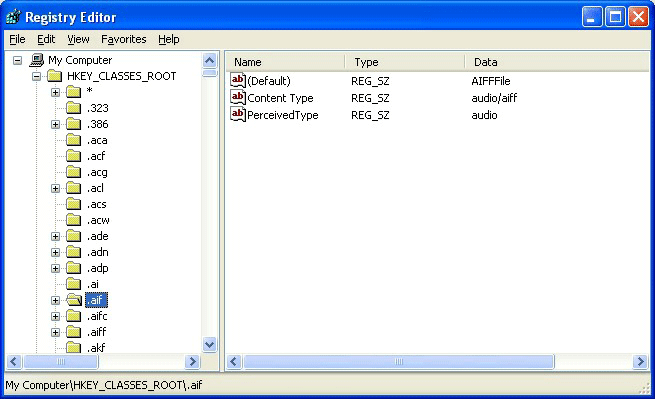Define how a document is converted from one format to another when a document is added to the Multimedia repository.
The Convert Registry entry provides a mechanism for converting one document format to another. As each conversion from one document type to another is defined as a separate Registry entry, providing a new conversion is simply a matter of adding a new Convert Registry entry.
Note: A Convert Registry defines the mechanism by which one document format is converted into another format. It does not make the conversion available to a user / group. A Documents Registry entry is then required to make the conversion available to users / groups.
The conversion framework supports three types of filters:
- Client-side filters: document conversion carried out by a client-side (Windows) program
- Client-side DDE filters: document conversion carried out by client-side (Windows) DDE server
- Server-side filters: document conversion carried out by server-side program
Each conversion translates from a start format to an end format; for example it is possible to start with a Word document and end up with an HTML document. For each start and end format entry any one of the above filter types may be used.
Documents in the Multimedia module that are formatted as HTML, RTF or TEXT (those with a MIME type of text/html or text/plain) are automatically indexed and fully searchable.
When a document is added to the Multimedia module it is possible to have alternative document formats generated automatically by the System. A Documents Registry entry specifies which document types are automatically created when a document is added to the Multimedia module. The Convert Registry entry specifies how to convert one document type to another.
With this mechanism, documents can be converted into an indexable format and their contents made fully searchable.
See How do I search attached documents for more details.
Usage
This Registry entry can be assigned to users, groups and system-wide:
| Key | User | Group | System |
|---|---|---|---|
| Key 1 | User
|
Group
|
System
|
| Key 2 | user | group | Setting
|
| Key 3 | Setting
|
Multimedia
|
|
| Key 4 | Multimedia
|
Convert
|
|
| Key 5 | Convert
|
handle | |
| Key 6 | handle | fileext | |
| Key 7 | fileext | filtertype | |
| Key 8 | filtertype | ||
| Value | options | ||
User
|
user | Setting
|
Multimedia
|
Convert
|
handle | fileext | filtertype | options |
Group
|
group | Setting
|
Multimedia
|
Convert
|
handle | fileext | filtertype | options |
System
|
Setting
|
Multimedia
|
Convert
|
handle | fileext | filtertype | options |
where:
|
handle |
is a document handle used to identify the document type being converted (the start format). A document handle is a label that is used to identify a document format. For example, the document handle for an HTML file is Using the document handle it is possible to set up different conversion Registry entries for documents with the same file extension. For example, if MS Word is installed on a computer, the document handle for .doc files is Word.Document.8. If WordPad is installed rather than MS Word, the document handle for .doc files will be Wordpad.Document.1. As the handles are different, even though the file extension is the same, different conversion filters can be set up. This allows filters to be set based on the software installed on a user's machine. To determine what the handle is for a given file type, it is necessary to look in the Windows Registry. The handle is the (Default) Registry value for the Registry key: \HKEY_CLASSES_ROOT\fileextension e.g. for a file extension of .aif, consulting the Windows Registry for the value of (Default) for \HKEY_CLASSES_ROOT\.aif gives the handle AIFFile:
Similarly, checking the file extension for .html (or .htm) gives a value of It is important to remember that the document handle is used to determine how a document is translated from one format to another. For example, converting a .doc file on a machine that has MS Word installed (with a document handle of Word.Document.8) to an HTML file (with a file extension of html), EMu Registry entries that would apply would be:
If the same conversion was to take place on a machine that has WordPad installed rather than MS Word, the following Registry entries would apply:
Note: When installing new conversion Registry entries it is important to make sure the correct document handle is used to specify the original document format. It is also worth considering what software may be installed that can perform the conversion. If a Registry entry cannot be found for translating a document, the conversion fails and the required document format is not produced. |
||||||||||||||||||||||||||||||||||||||||||||||||||||||||||||||||||||||||||||||||||||||||||||||||||||||||||||||||||||||||||||||||||||||||||||||||||||||||||||||||||||||||||||||||||||||||||||||||||||||||||||||||||||||||||||||||||||||||||||||||||||||||||||||||||||||||||||||||||||||||||||||||||||||||||||||||||||||||||||||||||||||||||||||||||||||||||||
|
fileext |
is the file extension of the document to be produced without the leading dot (the end document). |
||||||||||||||||||||||||||||||||||||||||||||||||||||||||||||||||||||||||||||||||||||||||||||||||||||||||||||||||||||||||||||||||||||||||||||||||||||||||||||||||||||||||||||||||||||||||||||||||||||||||||||||||||||||||||||||||||||||||||||||||||||||||||||||||||||||||||||||||||||||||||||||||||||||||||||||||||||||||||||||||||||||||||||||||||||||||||||
|
filtertype |
indicates what type of filter is to be used. Allowable values are:
|
||||||||||||||||||||||||||||||||||||||||||||||||||||||||||||||||||||||||||||||||||||||||||||||||||||||||||||||||||||||||||||||||||||||||||||||||||||||||||||||||||||||||||||||||||||||||||||||||||||||||||||||||||||||||||||||||||||||||||||||||||||||||||||||||||||||||||||||||||||||||||||||||||||||||||||||||||||||||||||||||||||||||||||||||||||||||||||
|
options |
depend on the filtertype selected (e.g. for a The three filter types with their supported options are detailed in the following pages. |
||||||||||||||||||||||||||||||||||||||||||||||||||||||||||||||||||||||||||||||||||||||||||||||||||||||||||||||||||||||||||||||||||||||||||||||||||||||||||||||||||||||||||||||||||||||||||||||||||||||||||||||||||||||||||||||||||||||||||||||||||||||||||||||||||||||||||||||||||||||||||||||||||||||||||||||||||||||||||||||||||||||||||||||||||||||||||||
Note: Although Registry entries may be set on a user or group basis, the System format is generally used.


